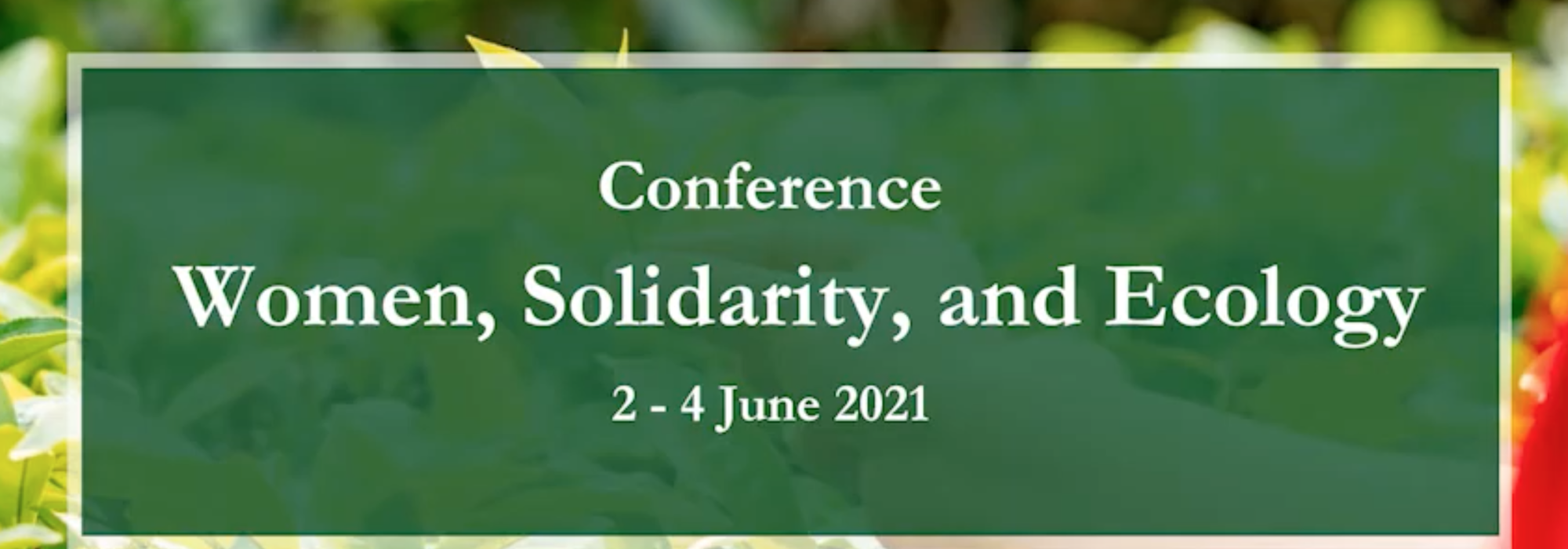
VIDEO - Women, Solidarity, and Ecology Conference
Key Details
This is the recording of a conference on "Women, Solidarity, and Ecology" held on 2 - 4 June 2021.
About
Pope Francis’ encyclical Laudato Si’ points toward the importance of solidarity with the earth and the most marginalized in society by urging us to listen to the “cry of the earth” and the “cry of the poor.” However, not enough attention is paid to both the disproportionate harm that women experience and their disproportionate protagonism in environmental activism and eco-social change. The Women, Solidarity, and Ecology conference intends to address this lacuna by exploring different facets of ecological devastation by integrating gender injustice in questions of social and environmental justice. The conference will specifically draw on the integral ecology paradigm as laid out in Laudato Si’. Integral ecology is not only deliberately transdisciplinary in perspective, but also incorporates philosophical and theological horizons. The wisdom from these traditions in turn provides a dialogical sounding board that may either challenge or reinforce secular societal assumptions that prevail in the West. The conference will examine case studies of those impacted by various forms of entangled environmental and gender injustice, and it aims to engage not only with those whose voices have been marginalised, but also to listen to those taking the lead in activist organisations at the forefront of eco-social transformation.
The following critically urgent and related themes will be examined: a) the need for a different and more ecologically sensitive economics, especially in a post-Covid context; b) the intersection of human rights, gender, and climate change; c) The role of the natural and human sciences in informing public debate and policy making on eco-social change; d) the political and eco-social damage, including biodiversity loss, of mining and other forms of extractivism; e) the structural issues of governance at the local and global level; and f) new approaches to feminist theology in the context of climate change.

